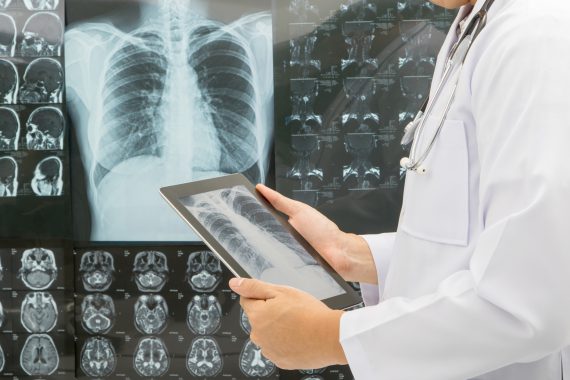GPs having to refer urgent cases for hubs due to ‘smart card’ problems

Exclusive Extended access hubs are passing on hospital referrals – including urgent cancer referrals – to GP practices to process due to NHS smart cards not working in certain hubs.
Doctors working in extended access hubs around the country are unable to access online systems using their cards, which give staff secure and auditable access to e-referrals, meaning they cannot make referrals electronically.
NHS England acknowledged that some local community services cannot currently link to national digital systems, including the electronic prescription service, but stressed the problem was being looked into.
At the moment some NHS trusts only accept electronic referrals, which means staff at the hubs are being forced to pass them onto nearby GP practices to process instead.
In some cases, this has included urgent cancer referrals, according to GP leaders in south London who experienced the issue last year – and warned it had still not been resolved.
They said the problems risk referrals being delayed, increasing the chance of errors by adding more steps into the clinical pathway, and also add to GP workload.
South-west London GP and professor of primary care at Imperial College London Professor Azeem Majeed said he became aware of the problem when his local hub sent urgent cancer referrals to his practice in Clapham.
He said the local trusts would not accept referrals via any other route other than via e-referral – and that he raised the issue with his local CCG, but it had not been resolved.
However NHS Lambeth CCG said that while the problem was being dealt with nationally, it had secured agreement with local GPs and hospitals for practices to process referrals to secondary care, and was monitoring the system closely.
But Professor Majeed said: ‘All NHS doctors should be able to make urgent cancer referrals and if a service can’t do this, it is not fit for purpose.’
Professor Majeed also pointed out that the referrals he received turned out not to be for his patients – and so had to be redirected again.
He said: ‘We have been sent referrals for patients who are not registered with our practice and have had to return these to the hub so they can be forwarded to the correct practice, inevitably leading to a delay in the referral.’
Londonwide LMCs medical director Dr Elliott Singer said GPs working on hubs can still make referrals by logging into a separate system, EMIS Web, but pointed out it is a ‘time-consuming’ process.
He said: ‘Our current advice is that in most cases GPs working in hubs should pass patients back to their registered GP to make an appointment and get a referral from them.
‘This obviously involves some duplication and adds an extra element where human error can occur, in the form of the patient’s registered practice needing to receive and action the record of the consultation in the hub.
‘Because of this risk of human error, we would suggest that in the case of two-week cancer referrals that GPs working in hubs do take the time to log into EMIS Web and make the referral themselves. We are not aware of any referrals being missed, two-week wait or otherwise, but it still feels safer to make these referrals directly.’
Professor Majeed said being able to make an urgent referral for cancer was an ‘essential component’ for any service and said he was disappointed this national problem had not been addressed by NHS England.
He said: ‘It is a national issue. Many trusts won’t accept GP referrals that do not come via the electronic referral system (ERS).
‘These referral forms are then sent to practices, which creates extra work for the practice as well as leading to delays in sending referrals.
‘I would regard the ability to make two-week referrals for patients with suspected cancer as an essential component of any primary care or urgent care service and it is very disappointing that commissioners and NHS England have not found any solution to this problem.’
An NHS Lambeth CCG spokesperson said: ‘The availability of ERS in the hubs, is a known national issue which the CCG and federation have developed a robust pathway in response to.
‘In Lambeth, our pathway ensures that patients receive safe and effective care – including referrals – within required timescales.
‘This pathway was agreed by all parties, including Lambeth practices and local acute hospital trusts, to avoid a parallel referral system which may cause delays.
‘We monitor the pathway closely and the number of incidents or alerts raised for the service are very low. Each incident or alert is subject to a thorough review at regular contract and performance meetings to ensure patients receive safe and effective care.’
An NHS spokesperson said: ‘Across the country extended access is helping patients get a local appointment with a GP, nurse or other healthcare professional in the evenings and weekends.
‘Where local systems don’t yet provide access to all functions, patients still receive safe and effective care – including referrals – within required timescales.’
In Telford, GPs working in extended access hubs saw only 13 patients on Christmas Day, Pulse recently revealed.









